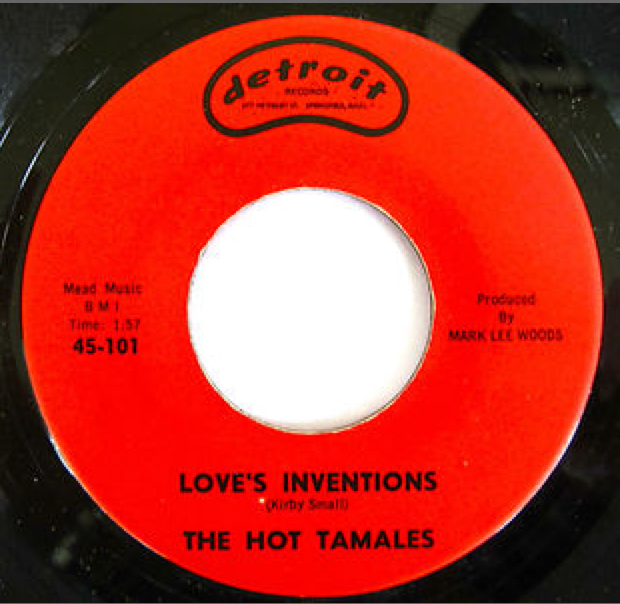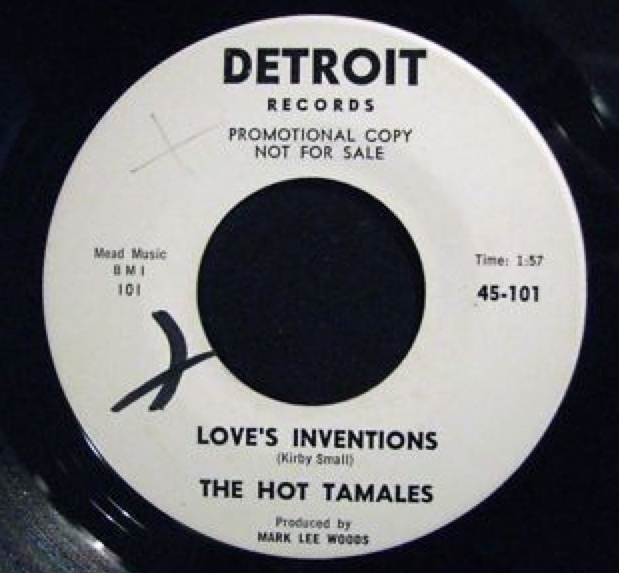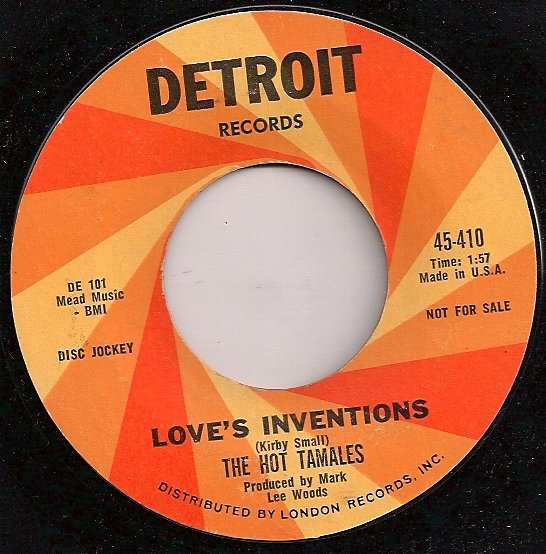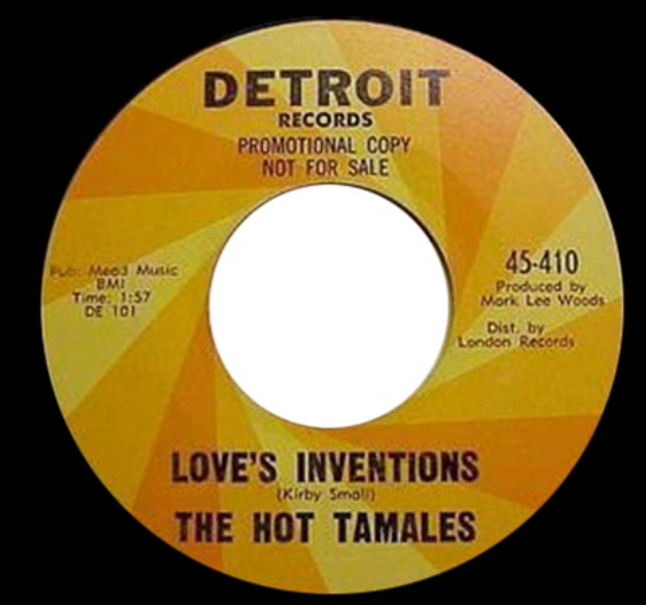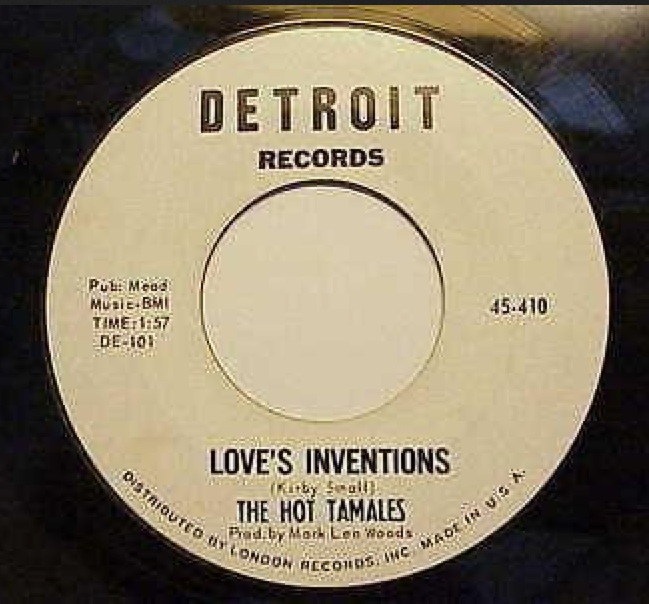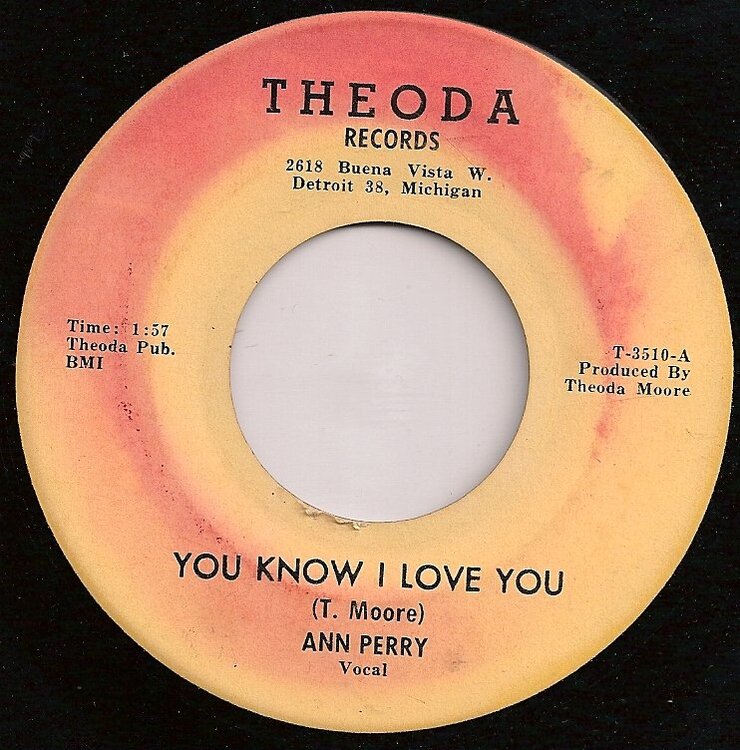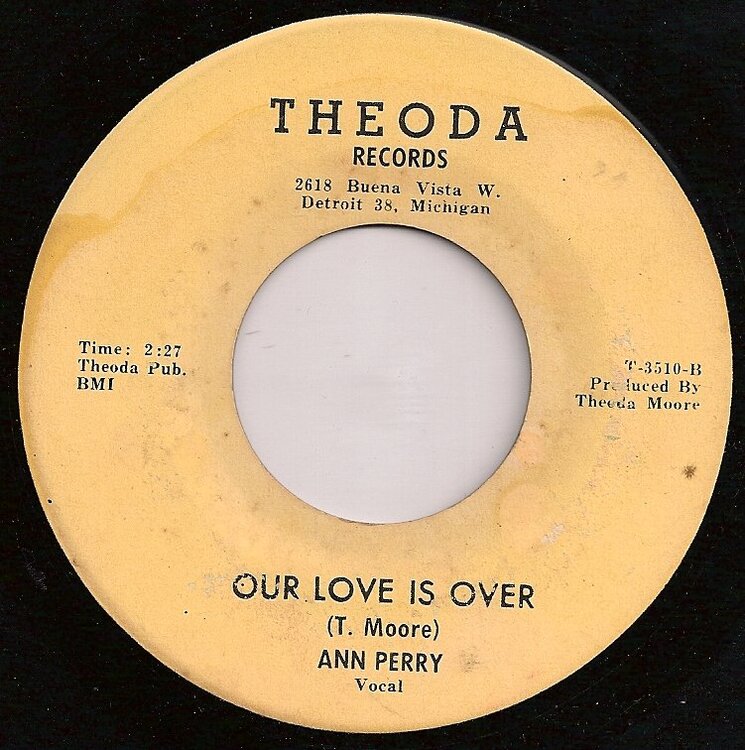-
Posts
4,417 -
Joined
-
Last visited
-
Days Won
39 -
Feedback
0%
Content Type
Forums
Event Guide
News & Articles
Source Guidelines and Help
Gallery
Videos Directory
Source Store
Everything posted by Robbk
-
I think we've posted all the different white DJ issues. There were London-distributed multi-colour store stock pressings from 1 or 2 plants other than those shown above RCA Pennsylvania and Monarch. That should just about cover the variations.
-
That was recorded for 20th Century Fox. Robert Bateman, Andre Williams, Barrett Strong and Sonny Sanders were the ex-Motowners working on her Detroit 20th Century Fox Mary Wells recordings. For Strong, he was still living in Chicago, working for VJ at that time. So, this was moonlighting. Sanders was still at Golden World. Bateman was a free lance producer in New York, but also worked on some projects with Popcorn Wylie in Detroit. I suspect that Wylie may have played piano on some of the Fox recordings, especially the demos for Mary.
-
I would like to hear this badly. Can anyone upload a sound file of it?
-
Carnival's New Jersey Manhattans, Golden World's Detroit group, and Bobby Robinson's New York's Ronnie & The Manhattans, The '50s New Orleans Barons on Imperial, early '60s Detroit group led by Roger Craton (Lee Rogers), early '60s RCA group, late '50s Epic group, Enchanters-early 50s Detroit group on Mercer and Coral, late '50s L.A. group on Orbit Records, Billy Butler & Enchanters, Garnett Mimms' Enchanters UA, Loma (there were so many othe Enchanters groups I won't bother to mention them all (NY, Texas,etc.).
-
There were 3 different white DJ pressings of the non-affiliated Boston local release, and one of the Lond-distributed national release, and there was also a coloured promotional pressing of the London distributed national release:
-
there are hundreds more(probably a few thousand). Just about any common word name one can think of: The Kittens (Chicago) (New Jersey), The Kings (Bobby Hall's Baltimore group). (NY group RCA) (Southern Group), Echoes (4 Echoes) (5 Echoes) , Jesters (NY) (Texas instr. group). , Twilighters (Det. Tony Ewing group) (NY group), Pretenders(Jimmy Jones NY) (Modern Rock group), Heartbreakers (Groove) (Tom Petty group), Rhythm Aces(VJ) (Bobby Moore group Checker), Miracles ( NY Paul Hogan group), ( Money/Cash Group) (Smokey Robinson Group), Supremes (Motown) (Ace Indianapolis group), various Dell-Vikings Del Vikings groups, Ideals (Chicago) (NY), Serenaders (Det aka Royal Jokers) (NY Bobby Robinson Group). Royals (Det. AKA Royal Jokers -Wingate/Fortune) (NJ George Kerr Group), Royals (Det. Federal) (Phil. Okeh) (NY Apollo before changing to Five Royales)), Four Buddies (Chicago-Club 51(NY Savoy) Wash.DC -Van McCoy group, Magnificents (VJ-Montague's group)(L.A. Dee Gee Group), Gems (Chi. male '50s Drexel) (Chi. female Chess Minnie Ripperton), The Flames (James Brown group) (Bay area 7-11 Group) Hollywood Flames various forms, Counts(Dot Tenn.) (Note group Indianapolis), HiLites (NY) (Ronnie & Hi-Lites-L.A.), Highlighters.(NY) (PA), Leaders (Hull '50s) (Blue Rock '60s), Majestics(Latino L.A.FARO) (Det-Johnny Mitchell group) (Det. Richard Street Group), Palisades (AKA Cookies-NY female group), (NJ male group), Corvettes (NY R&B group) (Rock instr. group), Constellations (Chi. Smash) (NY Violet), ........could go on forever. There were hundreds of rock/guitar instrumental groups that had the same name as R&B or Soul groups, male and female groups with the same name and old era group names resurrected.
-

Don Gardner - My Baby Likes to Boogaloo (Tru-Glo-Town)
Robbk replied to Chris Turnbull's topic in Look At Your Box
Alright.. No changes, then. "Satisfaction" has plenty of changes that keep it from becoming too repetitive, with no re-introduction of energy. I agree with you that no one could argue that it's not good for dancing. -
We've talked about Compass Records regarding The Ohio Players. I had always thought it was a Midwestern ( Ohio) label. But people on this forum said it was a New York label, reminding me that Johnny Brantley worked out of New York. Yet, I don't remember seeing ANY New York artist getting a Compass release. I assumed that these Adventurers are the same Milwaukee group that had releases on Chicago's Ran-Dee and Blue Rock. Is this true? Or were they a different, East Coast Group? Didn't Greg Perry work out of Detroit? Wasn't he a cousin of one of The Temptations (or someone at Motown)?
-

Don Gardner - My Baby Likes to Boogaloo (Tru-Glo-Town)
Robbk replied to Chris Turnbull's topic in Look At Your Box
It's a pretty boring cut, with no real hooks. Too much the same. It doesn't really hold up against a Junior Walker & The All Stars, Booker T & MGs, James Brown & Famous Flames, Bar-Kays, or David T. Walker Funk Boogaloo or Skate cut. I'm no Funk fan, but, I remember what kids liked at parties back in '67- '69, and this one was fairly marginal (at least in The Midwest), and non-existant on The West Coast. It probably had a lot of sales on in The Northeast and Central Atlantic Coast, because Gardner had a big following there because he was a regular star performer in their club circuit. I don't remember him making many appearances in Chicagoland. The only time I heard of him appearing on The West Coast was at the beginning of The '60s, when he and Dee Dee Ford had their monster national hit, "I Need Your Loving" out on Bobby Robinson's Fire Records. -

Don Gardner - My Baby Likes to Boogaloo (Tru-Glo-Town)
Robbk replied to Chris Turnbull's topic in Look At Your Box
I don't remember seeing it on a vinyl pressing. I've only ever seen it on the styrene pressings from New York's Shelley Pressing plant, whose labels often had their glue dry and the labels fall off. It was played some on WVON in Chicago. Yes, it was a "party record" there.I don't remember it being played in L.A or The San Francisco Bay Area. During the mid-to-late '60s, I was bouncing between Chicago and L.A,, and also visiting The Bay Area one in a while from L.A. It wasn't a big hit in Chicago, like so many local and Detroit records. It did show up at a decent amount of parties, and made it to a low chart position on WVON. I'm sure it wasn't played on WLS (Pop). -

Carl Henderson "that Girl" On Renfro - Orig. Or Boot ?
Robbk replied to Dennyj's topic in Look At Your Box
That's right. The stampers were made at ALCO Steel, not at Monarch (although Monarch did make many of their own). -

The Reflections - (Just Like) Romeo & Juliet Lana First US Release
Robbk replied to Sunnysoul's topic in Look At Your Box
"Just Like Romeo And Juliet" was Sonny Sanders' first job as an arranger. And what a fabulous debut! What a great instrumental it is! Right up there with many from Motown. -

The Reflections - (Just Like) Romeo & Juliet Lana First US Release
Robbk replied to Sunnysoul's topic in Look At Your Box
The Tony Micale Detroit Reflections' only release before Golden World was on Detroit's Kay-Ko Records. -

Carl Henderson "that Girl" On Renfro - Orig. Or Boot ?
Robbk replied to Dennyj's topic in Look At Your Box
I agree with both of you on the Carl Henderson. And, I have both the elaborate and simple label designs of "A Case of Love" by The Sequins, and the runout engravings and stampings are identical, other than the (new) label catalogue number (218) changing on the newer simple design. So, I believe that the simple designed labels were legitimate re-issues by the label owner, Anthony Renfro, at a later date, using original plates that Monarch still had on file. I bought all my Renfro original elaborate design labeled records in 1965-67, and never saw the simple labels back then. I think the latter were all issued during the late '60s or beginning of the 1970s by Anthony Renfro, as they were Monarch stamped, and used the original 1966 and 1967 Delta numbers. If they had been bootlegs done at Monarch, they'd have used current '70s Delta numbers, starting in the 90,000s or 100,000s. Had they been bootlegs done at another pressing plant, attempting to "appear" as original Monarch pressings, they'd have etched the original '60s Delta numbers, but NOT have had the Monarch encircled logo stamp. -

The Reflections - (Just Like) Romeo & Juliet Lana First US Release
Robbk replied to Sunnysoul's topic in Look At Your Box
Lana WAS a budget re-issue label, located in New York, running from 1964-1968 or so. But the interesting point about them was that most of their releases were alternate takes of the original hits, and the few that were not original alternate takes, were re-recordings by the original artists, after their contracts with the original release label were over, and they no longer had any exclusive recording artist contract with any current record label. -

Harvey "Any way you wanta" demo or boot ?
Robbk replied to Matthew Hardison's topic in Look At Your Box
It looks like a bootleg to me, in that its printing is so light. I have that version of the white DJ, and it did NOT have the small faces. But the print is MUCH. MUCH darker, and thicker. It appears to have been made from a scan or photocopy of the label, as is so common with lookalike bootlegs. I've never heard of Harvey and Gwen re-issuing any 45s legitimately, after their merger with Motown. I think that a legitimate '70s reissue would have been difficult to bring to fruition, due to their divorce. Furthermore, a legitimate re-issue to feed the collectors' market would NOT have been placed on an original lookalike DJ - especially with the "wrong" flip (Challengers). That has got to be a boot. -
Does anyone know if The J. E. Morgan on Theoda 518 was a legitimate '70s pressing by Theoda Moore, of recordings he had in the can, after finding out that there was a lot of demand in The UK for "That's The Way He Is"? And, maybe the Blue Detroit pressing was a legitimate re-issue by Moore to feed Northern demand? The J. E, Morgan just doesn't look like a '60s pressing. I find it VERY, VERY interesting that a tiny Detroit label's production got pressed and distributed by a fairly small L.A. distributor, and DIDN'T get pressed first in Detroit. This is almost as shocking as Lee Rogers having a Detroit production released only on a tiny L.A. label (Loadstone). But, that sort of thing was happening even in the 1950s, when The Royal Jokers' Detroit produced cuts were appearing on small L.A. labels like Swing Time and Recorded in Hollywood under bogus group names.
-
I can't help with anything not said on this thread about the original "That's The Way He Is". I have seen the L.A. CIRCA-distributed issue, and have the '70s boot. But, I have Ann Perry's other Theoda release, pressed in Detroit in the mid '60s, Theoda 3510, "You Know I Love You"/bw "Our Love Is Over". It has "T-3510-A etched on the "A" side. and T-3510-B on the "B" side. In addition, both sides have the "Sheldon" stamp (showing that it was mastered at Sheldon, in Chicago, like so many local Detroit pressing plant issues in the mid '60s). In addition, it has another stamp, which starts with a Capital "A". I can't make it out exactly, but, it looks like it might spell "American". Perhaps it was pressed at American Pressing plant in the suburban Detroit area? Maybe this information provides a clue as to whether or not the blue Detroit issues were '70s boots or authentic '60s pressings?
-

Gino Washington 'Like my baby' label variants
Robbk replied to Dave Thorley's topic in Look At Your Box
You are correct. Some of those versions of "Like My Baby" occurred in different years. The Mala release was issued in 1967 (I believe), and the ATAC distributed by RPR, was issued in 1968 or 1969. The Atac red and white was issued by Gino Washington in the early 1970s. The W.M.C. was the latest (mid or late '70s?). -
WOW! He's fabulous! I didn't know there was such good music still being made!!!
-

Big Frank & the Essences Philips Versus Blue Rock
Robbk replied to Tlscapital's topic in Look At Your Box
Things must have changed since I was searching for records (stopped seriously in 1972-altogeher in 1987 or '88). When I was looking in USA, since the record was released, I saw a LOT more on Blue Rock. Perhaps a box or 2 made it to UK through John Anderson (which is why the opposite is the situation in The NS scene now). I never even saw a Philips copy until the 1970s (and that was probably in England). I saw several Blue Rocks in USA during the first few years after its release ('65-'67). -
I was under the impression from reading the Detroit 67 book that the term came from Berry Gordy's Soul label. But Carmen Murphy had a Soul Records label starting near the end of 1961 or start of 1962, and running through 1963. But, I remember "Soul music" being used as a term for the genre of Blues/Gospel-based music, as early as the mid 1950s. Much of what you now term "Northern Soul" would NOT have been represented by that earlier, more narrow term, just the more heavily Blues and Gospel-derived tunes.
-

Big Frank & the Essences Philips Versus Blue Rock
Robbk replied to Tlscapital's topic in Look At Your Box
I was living in Chicago when the Blue Rock record was released in spring 1965. I saw a fair amount of the Blue Rock store stock issue. No one was buying it. I never saw the red on white DJ copy. I never saw the Philips pressing until the 1970s (so, I think it never got any decent distribution). I've never seen the Philips label atop the Blue Rock DJ. So that one must be extremely rare. I don't understand the reasoning for moving it to Philips after it failed to sell on Blue Rock. -
I saw literally millions of 45s during the 1960s, and never saw that blue pressing until the mid 1970s, so I'd say it would HAVE to be a boot, because, during the mid 1960s, I was traveling, looking at records in all parts of USA, and never saw it. I saw only white DJ and black store stock, in the variations shown above. The record was distributed nationally by VJ.
-
Yes, the OLD Modern series from 1945-1958 started in the early 500s and ran up to 1027 or so. The new series, started in 1964, and ran from 1001 to the1070s(?). From 1959 through 1963 most of their artists were shifted over to Kent Records. The same thing happend when the new Modern label was shut down. Kent ran for several more years. I haven't seen a better discography than Global Dog's, unless "Stack-O-Wax" is still operating. Maybe "Disco-File"? I've seen a few, but don't contribute anymore, so I don't have recent discographies. I suppose we could put together a discography of the NEW Modern label from contibutions of Soul-Source members.



